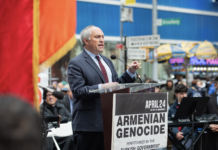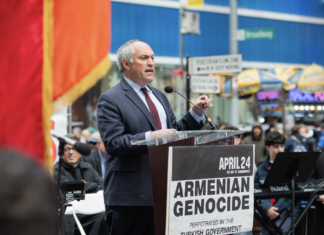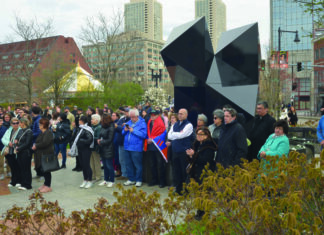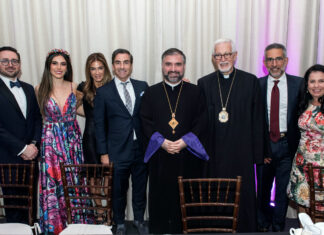By Aram Arkun
Mirror-Spectator Staff
CAMBRIDGE, Mass. — Fr. Vasken A. Kouzouian has been pastor of Holy Trinity Armenian Church of Greater Boston for 12 years, and is celebrating his 20th anniversary as an ordained priest. As the pastor of one of the largest and most influential parishes in the Diocese of the Armenian Church of America (Eastern), he plays an important role in as a leader of the Armenian-American community. On the occasion of his anniversary, he took the time recently to reflect on life as a priest and an Armenian American.










